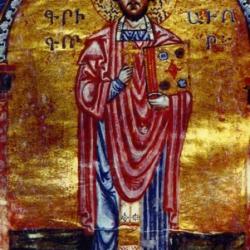
 “Dad, we can just Google it” is the reply I often hear from my children when I’m stumped by questions they ask. Recourse to this high-tech oracle did not avail itself to me as a kid, so this reality represents yet another novum for parenting in our hyper-digital age.
“Dad, we can just Google it” is the reply I often hear from my children when I’m stumped by questions they ask. Recourse to this high-tech oracle did not avail itself to me as a kid, so this reality represents yet another novum for parenting in our hyper-digital age.
As most of us have discovered, Google can ace the simple questions—which team won the BCS championship in 2010?—but it hasn’t quite mastered the complex ones—what is truth, goodness, beauty? In this respect, Google reflects the humanity of its makers: we ably to reach for information even as wisdom often exceeds our grasp.
Lately, my children have thrown some “big ones” my way: Are Jesus and God the same person? Why was I born? When will the world end? I do my best with these, but I confess that I still haven’t found my catechetical A-game.
Though it killed the cat, curiosity led me one evening to consider entering some of the big questions in Google searches, just to see what turned up. But then I paused and decided to sprint for the summit: I would search for God: I would Google “God.”
Internet searches often begin with a whimper, not a bang. The first entry that appears is Wikipedia’s article on God, the initial paragraph of which reads as follows:
God usually refers to the single deith in montheism or the monist deity in pantheism. God is often conceived of as the supernatural creator and overseer of humans and the universe.. Theologians have ascribed a variety of attributes to the many different conceptions of God. The most common among these include omniscience (infinite knowledge), omnipotence (unlimited power), omnipresence (present everywhere), omnibenevolence (perfect goodness), divine simplicity, and eternal and necessary existence.
Not bad, though, I thought, after perusing the whole article.
When one clicks on Google images, the first picture of God that appears, curiously enough, is a painting by the minor Italian Renaissance artist Cima Battista da Conegliano (1459-1517) that depicts God the Father–white beard, halo and all—ensconced above the clouds peering downward at his Creation. Could the people of the Italian village of Conegliano possibly have imagined in 1459 that one of their own would achieve digital immortality in 2012? In his omniscience did God himself know that he would have to endure this second-rate immortality one day?
Google’s second entry on God leads one to the website God.com—the theological coup of all time for domain name acquisitions, owned and operated by the Evangelical Media Group (EMG). Their homepage offers the viewer the following:
The following site offers information about God and direction in finding Him.
There are over six billion people in this world and each person has his or her own thoughts about God. How can a person know for sure what He is really like?
At some point in your life, you may have some of the following questions: Does God exist?, Is there a heaven and hell?, If so, how does one go to heaven?, Why are there so many religions and which one is right?, Is the Bible really true?, Why is Israel a focal point in history?
The evangelical and specifically dispensationalist roots of this outfit suggested by the questions become clearer when one clicks on the “about us” button. Here one finds:
“…you shall be witnesses to Me in Jerusalem, and in all Judea and Samaria, and to the end of the earth.” (Acts 1:8)
These were the words of Jesus addressed to His disciples just before He ascended into heaven. Just as Jesus prophesied, from that day on and for the past two thousand years, His disciples have continued to be His witnesses, taking the gospel message along the route He prescribed – Jerusalem, Judea, Samaria, and to the end of the earth. Thousands of those who have joined in this work remain nameless to us, but many are well known – Martin Luther, Count Zinzendorf, John Calvin, John Knox, John Bunyan, John Wesley, Hudson Taylor, David Livingstone, Charles Spurgeon, Charles Finney, D.L. Moody, Sundar Singh to name but a few.
Here, the plumbless serendipity of the Internet opens before one. Quickly, from a Google search on God, you can find yourself learning about Count Nicklaus von Zinzendorf, a key figure in German Pietism in the eighteenth century, and Sundar Singh, an Indian Sikh who converted to Christianity and became an active missionary before dying at the foothills of the Himalayas in 1929.
Where, finally, will searching for God on Google lead? I’m not sure. But one cannot help but be impressed (disquieted might be the better word) by the pervasive influence on the formation of knowledge created by initial entries from search-engine searches. This influence is especially strong for the young, my young, for whom “googling it” appears as a seamless extension of their minds. But, of course, it is not just the young.
But, again, whither God in this brave new world? Two entries down;1,829,999,998 to go.












